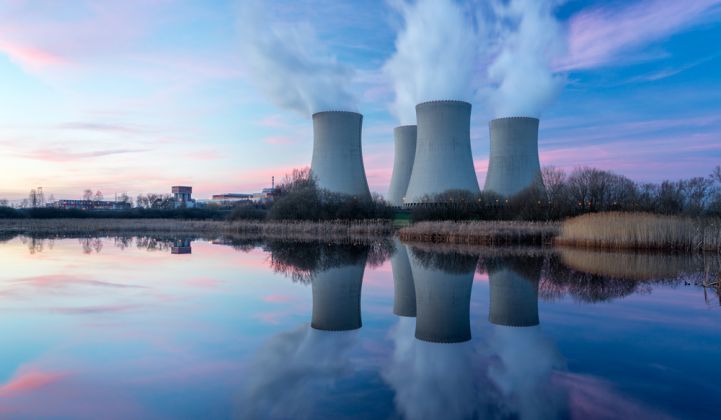Advanced nuclear reactors are moving toward commercialization faster and with less government support than many realize. Their smaller size and advances in computing are helping.

The old guard.
Over the last several years, there has been growing recognition that nuclear energy is an important climate mitigation technology.
Several states around the country have shifted from renewable energy mandates to technology-neutral clean energy standards that include nuclear energy, with more states likely to follow suit.
Even prominent environmental organizations, including the World Resources Institute, the Environmental Defense Fund, and the Union of Concerned Scientists, have supported efforts in states around the country to keep nuclear plants threatened with closure operating.
Building new nuclear plants, however, has been a different
Construction of two large conventional light-water reactors (LWRs) in Georgia is years behind schedule and billions over budget. Spiraling cost overruns and construction delays led to the cancellation of two new reactors in South Carolina.
As the prospects for a nuclear renaissance in the U.S. based on conventional nuclear technology have dimmed, many nuclear advocates have pinned their hopes on advanced reactors that are smaller and utilize different technologies.



